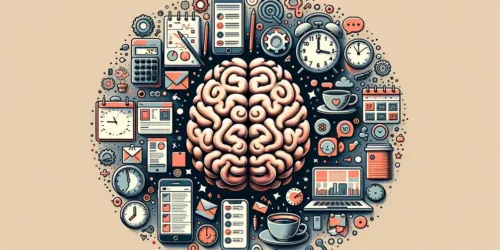The Battle of Male Personalities: Alpha, Beta, Omega
Have you ever considered how the classifications of Alpha, Beta, and Omega males might be influencing your daily interactions? You’re constantly engaging with a mix of these personalities, whether you’re aware of it or not.
Imagine you’re at a networking event; the Alphas are likely commanding the room, Betas facilitating connections, and Omegas standing apart with a unique perspective. You might find yourself drawn to one archetype over another, aligning with a familiar energy.
As you move through these social dynamics, it’s crucial to recognize not just the strengths and weaknesses inherent in each, but also how they can complement or clash within various contexts. Unpack the subtleties of these personality types, and you might just unlock the secrets to navigating social landscapes with a newfound finesse.
Key Takeaways
- Alpha males possess natural confidence and assertiveness, making them effective leaders who inspire others.
- Beta males prioritize friendliness and loyalty, often acting as mediators between alpha males and others.
- Omega males have a self-assured and independent nature, excelling in intelligence and unconventional interests.
- The differences between alpha, beta, and omega males lie in their approaches to leadership, seeking approval, and their mindset towards societal norms.
Defining Alpha Dominance
Alpha dominance embodies a set of behaviors and traits that assert one’s position as the most authoritative and influential member within a social hierarchy. This concept is integral to understanding social dynamics, particularly in male interpersonal relations. Alpha traits often include unwavering confidence, acute leadership abilities, and pronounced assertiveness. These individuals don’t shy away from expressing their convictions; instead, they navigate social structures with a certain decisiveness and gravitas that others often aspire to emulate.
Analytically, alpha dominance isn’t merely about physical prowess but also about the psychological influence exerted over peers. It involves a complex interplay of social cues and personal attributes, forming a distinctive pattern recognized and respected by others. Understanding these dynamics equips you with insights into the fundamental aspects of social stratification.
Understanding Beta Roles

While alpha dominance focuses on asserting authority, understanding beta roles is crucial to comprehending the nuances of support and collaboration within social hierarchies. The role of beta males in social hierarchies often revolves around the following:
- Facilitating group cohesion
- Mediating conflicts
- Providing steady support to leaders
- Contributing to collective decision-making
These roles underpin the stability of social dynamics, where beta personalities are pivotal. Their impact on interpersonal relationships is marked by a balance between deference to leadership and the maintenance of social bonds.
Beta males typically reinforce group harmony through diplomacy and a willingness to cooperate, rather than compete, with alpha individuals. This equilibrium allows for a diverse range of personalities to coexist and function effectively within various social constructs.
The Omega Identity

Diverging from traditional hierarchical models, the Omega male embodies a unique blend of self-reliance and unconventional innovation. As you delve into the Omega male lifestyle, you’ll find it’s marked by a distinct independence from societal norms.
The unique personality traits of an Omega male include a secure sense of self and a nonchalant approach to external validation. Unlike Alphas, they don’t rely on group dynamics for their status. Their intelligence often shines in their adeptness at problem-solving, yet they mightn’t leverage this for traditional success.
Living life on their own terms, Omegas may pursue interests deemed unconventional, opting out of the rat race in favor of a path less trodden – one that prioritizes personal satisfaction over societal accolades.
Alpha Vs Beta Dynamics

In examining the dynamics between alpha and beta males, it’s essential to understand how their distinct personality traits influence social hierarchies and interpersonal relationships. Alphas tend to exhibit dominant leadership styles, often taking the helm in social and professional scenarios. Their decisiveness and confidence can be magnetic, drawing others to follow their lead.
Beta males, contrastingly, may adopt more collaborative leadership styles, supporting the group and contributing without overshadowing others. Their communication styles are generally more empathetic, facilitating harmony within the group. Consider:
- Alphas command, betas collaborate
- Alphas dictate, betas mediate
- Alphas inspire through strength, betas connect through understanding
- Alphas are often the voice, betas the ears
This intricate interplay defines the power balance in male-dominated social structures.
Alpha and Omega Contrasts

Exploring the dynamics between alpha and omega males reveals a different set of contrasts that further shape social interactions and individual identities. Alpha male traits exude confidence and leadership, positioning them as dominant figures within group settings, particularly evident in the workplace. They’re assertive, often becoming the trusted advisors whose positive mindsets drive organizational progress.
Conversely, omega males display a blend of independence and intelligence, marked by an adherence to self-defined values over societal norms. In the workplace, these traits manifest as a preference for autonomy and a penchant for skillful problem-solving in unconventional ways. While alphas lead, omegas innovate, often eschewing traditional paths for unique, individualistic approaches.
Understanding these distinctions is crucial for grasping the complex interplay of male personality types in various social structures.
Social Hierarchies Explored

Social hierarchies, a cornerstone of human interaction, shape the roles and dynamics between alpha, beta, and omega males in various contexts. When you’re exploring social hierarchies, you’re delving into a complex system where each male personality type finds its niche influenced by:
- Leadership roles often assumed by alpha males.
- Supportive positions that beta males adopt, reinforcing the structure.
- Non-conformist spaces where omega males thrive.
- Cultural expectations that dictate behavior and interactions among these groups.
The impact of societal expectations on male personalities is significant. You’re witnessing a dynamic interplay where each male personality type navigates social structures, striving to meet or redefine the roles assigned to them.
This analysis reveals the fluidity within social hierarchies and the continuous evolution of male identities.
Interpersonal Relationships Impact

How do alpha, beta, and omega male personalities navigate and influence the dynamics of interpersonal relationships?
The impact on communication and influence on team dynamics vary considerably among these archetypes. Alpha males, with their assertive demeanor, often dominate discussions, potentially stifling the contributions of others. Their leadership can unify or divide, depending on their capacity for empathy and inclusiveness.
Beta males, serving as the glue in social settings, typically enhance team cohesion through their mediator role. They listen and integrate diverse perspectives, fostering an environment where everyone feels heard.
Conversely, omega males, with their independence and unconventional interests, may challenge group norms, offering fresh insights but also risking alienation if their ideas diverge too sharply from the collective mindset.
Each personality type brings a distinct flavor to the social fabric, affecting outcomes in varied ways.
Frequently Asked Questions
How Do Cultural Differences and Societal Norms Influence the Perception and Roles of Alpha, Beta, and Omega Males Across the World?
Cultural archetypes and societal norms shape your perception of personality types, influencing the evolution and roles of different male behaviors in various regions, reflecting local values and expectations.
Can Individuals Exhibit a Combination of Alpha, Beta, and Omega Traits, or Are They Strictly Categorized Into One Personality Type?
You’re not confined to one label; personality fluidity allows you to exhibit traits across the identity spectrum, blending alpha, beta, and omega characteristics in a dynamic, ever-evolving personal profile.
How Do These Personality Types Impact Romantic Relationships and What Challenges May Arise From Differing Personality Dynamics?
In relationships, differing personality types can lead to clashes, affecting attraction patterns. You’ll find that understanding each other’s traits is key to navigating the complexities of a romantic partnership.
In What Ways Can the Alpha, Beta, and Omega Classifications Be Seen as Limiting or Damaging to Personal Growth and Self-Identity?
You might find personality pigeonholing into alpha, beta, or omega categories limits growth, as it constrains self-identity and can negatively impact self-esteem by promoting fixed rather than fluid understandings of oneself.
How Does the Concept of Male Personality Types Intersect With Modern Discussions on Gender Fluidity and the Rejection of Traditional Gender Roles?
You’re exploring how male personality types relate to gender fluidity, recognizing personality fluidity within the gender spectrum challenges traditional roles, fostering a more inclusive understanding of individual identity and expression.
Conclusion
In the end, you might find the irony palpable; the very labels intended to pigeonhole male behaviors—Alpha, Beta, Omega—only serve to simplify the rich complexity of human identity.
As you dissect social standings and interactions with scholarly detachment, remember: these archetypes are but a prism, refracting the myriad facets of personality.
Thrive by recognizing the strengths and limits within each, but never forget the fluidity of the human spirit transcending any archetype.






